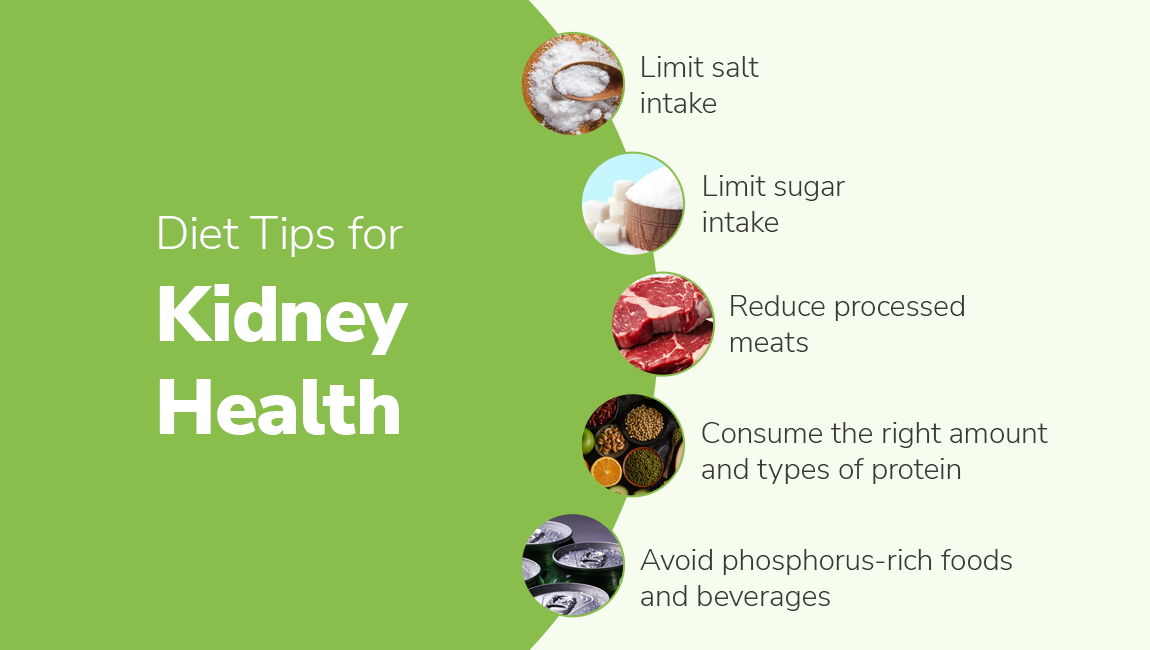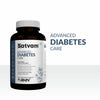Kidneys are part of the renal system of the body. They are the main filter systems that flush out toxic substances and waste material from the blood as urine and keep the blood clean. These bean-shaped organs balance bodily fluids and regulate blood pressure. They detoxify the blood and send it back to the heart. Kidneys play a pivotal role in the maintenance of overall health and wellbeing, while diet and lifestyle are the key determinants of kidney health and its normal functioning.
World Kidney Day is round the corner, and it’s officially the time to shed some light of awareness around kidney wellbeing. In this blog, we talk about optimal kidney function, raise awareness regarding chronic kidney diseases, and learn about the steps to maintain overall kidney health.
Function of Kidney in the Body
Kidneys are made up of millions of nephrons, that are the filtering units of the body. The nephrons adopt a two-step process to fulfil their function. Firstly, the glomerulus in the nephrons filter the blood. Then, the nephron tubules return the necessary substances back to the blood and remove the unnecessary waste. The waste and extra water then turn into urine and gets flushed out of the body.
Here are some of the major functions performed by the kidneys to keep the body healthy.
- Kidneys remove waste and extra fluid from the body, thus maintaining overall fluid balance.
- They balance the salts, essential minerals (electrolytes), and water in the body by removing the acid produced by the cells.
- Kidneys make hormones that help make red blood cells, control blood pressure, and keep the bones strong and healthy.
Common Kidney Diseases and Factors Affecting Kidney Health
Chronic kidney disease (CKD), one of the most common kidney diseases, affects 8 to 16% of the world’s population and is one of the top ten drivers of increasing the disease burden worldwide. CKD is a long-term condition wherein the kidneys do not function optimally. It is a condition that often goes undetected until it reaches an advanced stage. If left untreated, CKD can lead to kidney damage and kidney failure. Some of the other common kidney diseases are as mentioned below:
Other Common Kidney Diseases
- Polycystic Kidney Disease: Causes cysts in the kidneys, thus hindering waste filtration from the blood.
- Glomerulonephritis: Damages glomeruli, the tiny filters in the kidney that remove waste and toxins from the blood.
- Lupus Nephritis: An autoimmune disease where the body's immune system attacks the kidneys.
- Interstitial Nephritis: Tissues in the kidney become inflamed and have problems with filtering waste from the blood.
- Pyelonephritis: A urinary tract infection (UTI) within the kidneys which can lead to kidney damage on frequent occurrence.
Research shows that there is an increasing link between inflammation, certain whole foods, and chronic diseases. Overall health, associated health conditions, diet, and lifestyle are the major factors that affect kidney health significantly. To keep the kidneys well-functioning and steer clear of kidney-related diseases, it is important to maintain overall health to prevent chronic conditions. Consuming a nutritious renal diet and following a healthy lifestyle help gain the desired results effectively. Here are some tips for the same.
Diet Tips for Kidney Health

Following a kidney-friendly diet and limiting certain foods can improve kidney function, maintain healthy kidneys, and prevent further damage. Here is a complete dietary guide comprising of which foods to consume more and which foods to avoid.
- Limit salt intake
Sodium, a mineral found in salt, if consumed in excess, can cause high blood pressure, and put stress on heart and kidneys. Limit your salt intake to less than 2300 mg per day. According to the Centres for Disease Control and Prevention, 70% of the sodium you eat comes from packaged and instant foods. High blood pressure is one of the leading causes of kidney disease. Limiting salt and salty foods can keep the blood pressure under control and reduce kidney damage.
Other tips to reduce daily salt intake-
- Eat home cook meals prepared from scratch as much as possible
- Eat more fresh fruits and vegetables
- Limit or look for prepared meals with less than 600 milligrams of sodium per meal (the limit for labelling a meal as “healthy,” according to the FDA)
- Purchase packaged foods labelled “low sodium” or “no salt added”
- Season foods with garlic, citrus, herbs and spices, instead of salt.
- Reduce consuming canned beverages like soda and soft drinks are loaded with artificial sugars and additives like phosphorus.
- Limit sugar intake
Sugar is one of the major causes of obesity and overweight. These lead to diabetes and high blood pressure, two of the leading causes of kidney problems. Added sugar in any food or beverage can contribute towards deterioration of overall health. Avoid sweetened foods, desserts, beverages that are loaded with artificial sugar and sweeteners. Other not-so-sweet food items that are high in processed sugar include white bread, breakfast cereals, and certain condiments.
- Reduce processed meats
Processed meats are high in preservative content and have long been associated with chronic illnesses. Meats that are dried, canned, salted, or cured are processed meats, and typically contain a large amount of salt. Moreover, these meats are high in protein, which can be harmful in case of poor kidney health. Limiting processed meats intake can be an effective way towards healthier kidneys.
- Consume the right amount and types of protein
Consuming excessive protein can exacerbate kidney diseases, and doctors limit it if your kidney functions are worsening. The proteins you consume mainly come from plant and animal sources. Opt for plant-based proteins, as they are easier for your kidneys to break down than animal proteins. They also produce fewer waste by products that can cause metabolic acidosis and uremia.
- Avoid phosphorus-rich foods and beverages
Peoples with kidney diseases often have elevated phosphorus levels, resulting in calcium imbalances and bone fragility. Dark soda and processed foods should be avoided. Embracing a diet rich in plant-based foods can aid in lowering phosphorus levels and maintaining bone health.
Kidney-Friendly Foods to Eat More
- Cauliflower
- Red grapes
- Blueberries
- Garlic
- Onions
- Egg whites
- Olive oil
- Cabbage
- Bell peppers
- Pineapple
- Skinless chicken
Lifestyle Tips for Kidney Health
Lifestyle and daily habits have a direct impact on kidney and overall health. Here are some crucial lifestyle tips to improve and maintain kidney wellbeing.
- Limit medication intake
Over-the-counter painkillers like nonsteroidal anti-inflammatory drugs (NSAIDs) and others could be harmful to the kidneys, and must be absolutely avoided if you already have kidney disease. Consult with your doctor and dietitian about any supplements or over-the-counter medicines you are taking.
- Get sound sleep
Quality sleep for 8 hours at night is vital for overall health, and the kidneys too. The kidney function is connected to the body’s circadian rhythm wherein the sleep-wake cycle regulates its function and 24-hour workload.
- Quit smoking
Studies have shown that people who smoke are more likely to have protein in their urine, which is a sign of kidney damage and malfunction. Smoking causes damage to kidney blood vessels and decrease the blood flow, thus hindering their ability to filter waste materials from the blood.
- Limit alcohol consumption
Regular consumption of alcohol has been found to increase the risk of chronic kidney disease by double. Moreover, regular heavy drinkers who are also smokers have about five times the risk of CKD, as compared to non-drinkers and non-smokers. Limiting the consumption of alcohol to limited amount occasionally can lower the risk of kidney damage.
- Movement and regular physical activity
Recent studies have shown that sitting for longer periods of time can lead to the development of kidney diseases. Leading a non-sedentary lifestyle can reduce the risks of obesity, high blood pressure, diabetes, and cardiac diseases, all associated with kidney problems.
Healthy Kidneys for a Healthy Body
Kidneys are the key filters that purify blood and maintain the fluid and mineral quotient in the body. Several factors affect kidney health, including diet, lifestyle, and risk of other associated chronic diseases. Looking after one’s overall health and wellbeing by maintain a healthy diet and lifestyle can alleviate major chronic conditions and prevent kidney damage.
To maintain optimal kidney health and function, and prevent kidney diseases, incorporate natural, plant-based Kidney Detox supplement in everyday diet. Follow the above-mentioned tips and stay healthy and happy naturally!

















